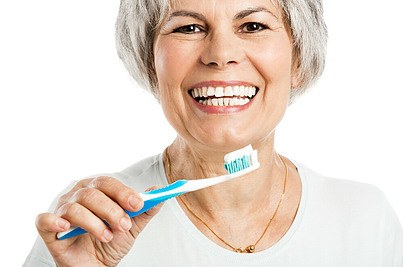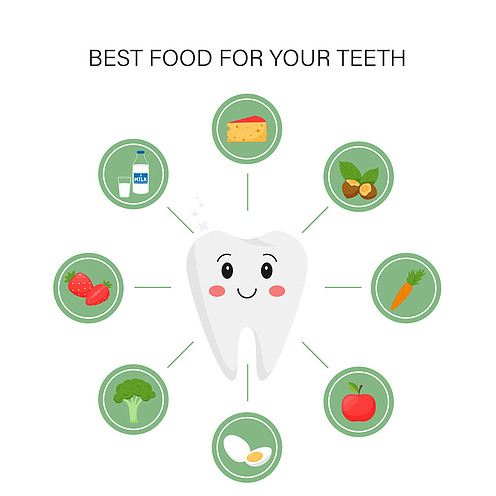
You are never too old to benefit from a beaming and healthy smile. Many of us realize that as we age, our teeth, gums, and mouth go through some profound changes – you start to notice that your dentition requires a little more care and attention. This is the reality many seniors face, but understanding why immaculate dental care when you reach this stage can make all the difference.
As you may already have heard, your dentition or dental health is like a “window” to your overall health, especially in senior years. Ignoring to look after your teeth, gums, and oral health can lead to pain, infection, and loss of teeth to mention just a few problems.
These avoidable dental problems affect the way you enjoy food, your nutrition as a whole, and even your speech. Plus, there is a growing body of evidence showing that the “inflammation” from “severe gum disease” might be linked to other health issues like heart disease, stroke, and diabetes – all common concerns as we get older.
Investing time in preventive oral care saves money in the long run. You will be preserving your health by avoiding complex dental procedures through daily care and regular check-ups…This is a win-win situation in the long run and you are also saving yourself huge dental costs while you are at it. After all, treatments for dental issues can be costly, and they often become more complicated with age.
Today, we try to understand the day-to-day actions you can take to keep your teeth in top shape. And remember, it’s never too late to start. If you’re curious about which tools and techniques are best for oral hygiene in your golden years, keep reading. The next section is all about just that – making sure you’ve got the right approach to dental hygiene tailored to the needs of your smile.
Mastering Daily Dental Routines
I’m here to help you with your daily dental routine. As you get older, your mouth changes and your dental care needs special attention to keep your smile healthy. Now, mastering brushing and flossing might sound basic, but trust me, they’re the foundation of good oral health, especially for seniors.
Brushing twice a day with fluoride toothpaste is a must, and I can’t stress enough the importance of choosing the right toothbrush. Go for a soft-bristled brush. It’s gentle on your gums and just as effective in cleaning your teeth. Electric toothbrushes can also be a game-changer if you’re dealing with arthritis or any condition that affects your hand strength.
Flossing should never be skipped. If regular floss is tricky to handle, look into floss holders or interdental brushes. These tools are fantastic for getting in between teeth and can make a big difference in preventing gum disease and tooth decay.
If you’re struggling with sensitivity, there are toothpastes specifically designed to help with that. For added protection, rinsing with an antibacterial mouthwash can reduce bacteria that cause plaque and gum disease. Remember, being consistent with these practices is key to keeping your teeth and gums in top shape.
Lastly, don’t forget to replace your toothbrush every three to four months – or sooner if the bristles are frayed. A worn-out brush won’t do your teeth any favors. Now, let’s move on to professional dental care, which plays a crucial role in your oral health strategy.
Professional Dental Care: Frequency and Expectations
I’m going to clue you in on something; regular dental checkups are your secret weapon against many oral health problems, especially as you age. You might be wondering just how often you need to schedule those visits. Typically, dentists recommend that seniors come in for a check-up every six months. But here’s the deal: everyone’s needs are unique, so your dentist may suggest a frequency tailored to your specific oral health situation.
What happens during these visits? Think of them as maintenance for your mouth. Professional cleanings are crucial because they can remove plaque and tartar that you can’t get rid of with your toothbrush at home. This is vital for preventing periodontal disease, which, by the way, is significantly more common as we get older.
Your dentist will also keep an eye out for any signs of decay, gum disease, or oral cancers. Early detection can mean simpler and less costly treatments. If you’ve got restorations like fillings or dentures, they’ll ensure these are in good shape, too.
Choose something that resonates with you when it comes to selecting a dental professional. You want to feel comfortable and be in expert hands. After all, visiting the dentist is a key part of your health routine. If mobility or transportation is an issue, some dental offices even offer services to help. So don’t let that be a barrier.
Tackling Dry Mouth: Solutions and Recommendations
I’m going to level with you – dry mouth isn’t just uncomfortable, it’s also a catalyst for dental health problems. Now what exactly causes dry mouth, especially in older adults? It’s often due to medication side effects, but can also come from certain health conditions.
A lack of saliva is more than just annoying. It plays a crucial role in dental health by washing away food particles and neutralizing harmful acids. Without enough of it, you’re at a higher risk for tooth decay and gum disease.
You’re going to find out about some practical steps to mitigate dry mouth. Stay hydrated by sipping water throughout the day, chew sugar-free gum to stimulate saliva, and consider using saliva substitutes if recommended by your dentist.
In my opinion, the best approach is a proactive one. If medication is the culprit, discussing alternative options with your healthcare provider can make a big difference. And don’t overlook simple remedies like running a humidifier at night to add moisture to the air.
Finally, if you have persistent dry mouth issues, bring it up during your dental visits. Professionals can provide personalized advice, and possibly even prescribe treatments to help keep your mouth moist and healthy.
Nutrition’s Role in Senior Dental Health

Did you know that what you eat can be just as crucial for your teeth as for the rest of your body? When it comes to senior dental health, the connection between nutrition and oral well-being is often overlooked. But here’s the scoop: certain nutrients play a vital role in maintaining a healthy smile, especially as you age.
First up, it’s important to get an ample supply of calcium and vitamin D, working together to keep your teeth and jawbone strong. Milk, cheese, and leafy greens are excellent sources of calcium, while vitamin D can be found in fatty fish and fortified foods – or just by soaking up some gentle morning sun.
You’ll also want to be friends with phosphorus-rich foods, such as seeds, nuts, and whole grains. They team up with calcium and vitamin D to enhance tooth enamel, making you less susceptible to tooth decay.
But it’s not just about what to include; there are certain no-gos as well. Sticky, sugary snacks might taste good, but they’re your teeth’s worst enemies. They latch onto your teeth and become a feast for bacteria, which leads to tooth decay. Acidic foods and beverages are culprits, too; they can erode enamel over time. It’s best to enjoy these in moderation and always follow them up with a glass of water.
Now, if chewing tough or crunchy foods becomes challenging due to dental appliances or tooth loss, opt for softer foods that still pack a nutritional punch. Think steamed veggies, smoothies, and soups. They’re easier on the teeth and can be just as delicious.
Remember, a balanced diet maintains dental health and overall wellness. But don’t stop at nutrition. Stay tuned because we’re jumping into how you can navigate dental care with preexisting health conditions. Trust me, it’s a game-changer for maintaining that radiant senior smile.
Navigating Dental Care with Preexisting Health Conditions
I’m going to dive into how aging isn’t just about changing numbers. It often comes bundled with health conditions that can complicate your dental care routine. You’re going to find out why it’s essential to account for these conditions when planning your dental hygiene.
Did you know that chronic conditions like diabetes and heart disease can affect your oral health? Well, they do, and it’s important to tailor your dental care to accommodate any preexisting health issues.
Choose something that resonates with your health profile. For example, if you have arthritis, ergonomically designed toothbrushes can make brushing less of a chore. Upgrading your routine to include water irrigators might be a game-changer for maintaining dental hygiene with limited mobility.
Managing dry mouth is essential if you’re dealing with conditions that require medications, which often list dry mouth as a side effect. Your approach here could include special mouthwashes or hydrating gels that help stimulate saliva production.
Don’t worry too much about having a perfect plan from the get-go. You can always adjust based on feedback from your dentist, who should be informed about all your health concerns and the medications you’re taking.
In my opinion, open communication with your healthcare providers is priceless. It ensures that your oral care routine is not just thorough, but safe and effective, especially when you’re juggling multiple health concerns.
Now, what about when dental care costs start to climb, and you’re on a fixed income? That’s where section 7 comes in, offering you strategies to make dental care both accessible and affordable. Let’s explore how you can stretch your dollar without compromising on a healthy smile.
Making Dental Care Accessible and Affordable for Seniors
Let’s face it, staying on top of dental care as a senior can feel overwhelming, especially when it comes to cost. But, I’m here to help you understand how to keep dental care both accessible and affordable, whether you’re managing on a fixed income or navigating the complex world of insurance.
First up, getting to grips with dental insurance options is key for seniors. This isn’t just about having coverage; it’s also about understanding what treatments are included. I’ll help you figure out the most common types of coverage and how to read the fine print to make sure you’re getting the most bang for your buck.
But what if insurance just isn’t in the cards? No worries. I’ve got you covered with plenty of resources to help you find affordable, often discounted, dental care. From local health departments to dental schools offering services at reduced rates, there are options out there for every budget.
Planning for dental expenses doesn’t have to be difficult or a headache. With some savvy financial strategizing and an understanding of the resources available, you can make sure your oral health doesn’t take a backseat due to financial constraints.
In Conclusion
Remember, prioritizing dental care is a priceless investment in your overall health. Infections and chronic conditions can often find their first signs in your mouth. So, by ensuring accessible and affordable dental care, you’re not just saving your smile—you’re safeguarding your health for years to come.
